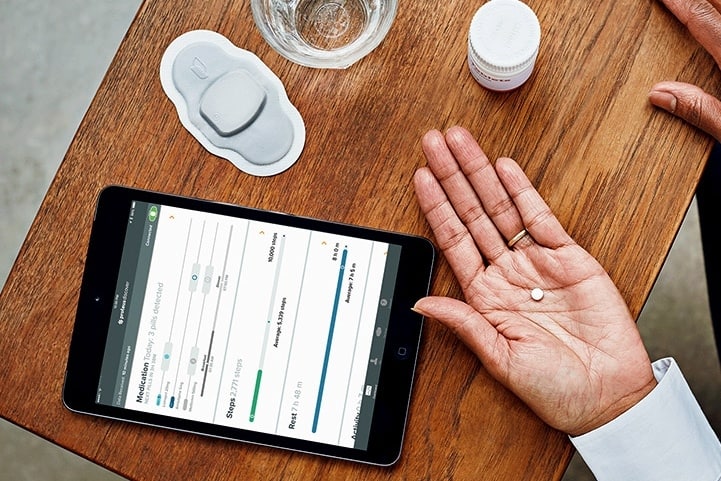Proteus Digital Health—makers of an ingestible sensor embedded within a pill to track medication usage—has filed for bankruptcy, after failing to raise funding in part due to the COVID-19 pandemic.
The company’s Chapter 11 filings described a “severe liquidity crisis” in the months leading up to the novel coronavirus outbreak. In November 2019, Proteus was forced to furlough “nearly all of its employees for over two weeks” and considered bankruptcy at the time, as it worked to pursue an advance in funds through its collaboration with the Otsuka.
But even with a multimillion-dollar agreement with the Japanese drugmaker, Proteus said it would still need more money to support its operations going forward. The company’s bankruptcy court filings described both the spread of COVID-19 and prevailing market conditions as nails in the coffin when it came time to find interested parties.
Since its founding in 2002, Proteus had raised nearly $500 million in funding, and was once dubbed a healthcare unicorn with a valuation of $1.5 billion, according to Forbes, as well as a 2012 Fierce 15 winner. Its pitch for a digital pill—with a sensor the size of a grain of sand, which could confirm exactly when a pill has been taken—aimed to tackle Big Pharma’s long-standing troubles with patient adherence.
It was first approved as a medication by the FDA in 2017, embedded within Otsuka’s Abilify treatment for schizophrenia. After that, in October 2018, Proteus and Otsuka extended their collaboration for another five years and $88 million, with the goal of developing a new generation of ingestible sensors and smart pills.
Proteus would later introduce its technology as part of an oral chemotherapy regimen, in collaboration with the University of Minnesota health system and a nonprofit network of Minnesota clinics. Mixed with capecitabine for stage 3 and 4 colorectal cancer, clinicians hoped to use the sensors to intervene if patients did not take their medication correctly or missed a dose.
But ultimately, its five-year development collaboration with Otsuka was cut short, according to a report from Stat this past January, causing Proteus to lay off employees and pull back its work in mental health and cardiovascular medications. That included a payout from Otsuka in return for a license to Proteus’ technology.
Now, the company’s bankruptcy filings say Proteus and Otsuka “have had fruitful discussions regarding a potential transaction that could serve as a stalking horse bid in a chapter 11 sale process.”

